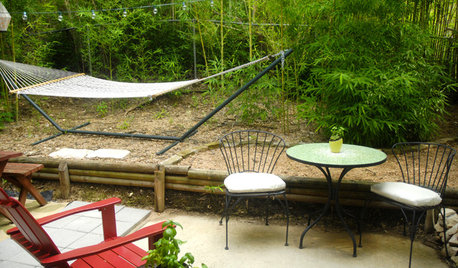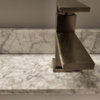Water softener decision for Austin, Texas city water
Ivan I
9 years ago
Related Stories

REMODELING GUIDESRegional Modern: Austin, Texas
Contemporary and modern Austin homes reflect the area's climate and eclectic style
Full Story
ARCHITECTUREWhat’s Fueling Austin’s Edgy Modern Architecture?
A look at the blossoming design scene in Texas’ capital city — and what’s behind all the experimentation
Full Story
SAVING WATERXeriscape Gardens: How to Get a Beautiful Landscape With Less Water
Conserve water and make gardening much easier with the xeriscape approach’s 7 principles
Full Story
SAVING WATER11 Ways to Save Water at Home
Whether you live in a drought-stricken area or just want to help preserve a precious resource, here are things you can do to use less water
Full Story
LIFEThe Top 5 Ways to Save Water at Home
Get on the fast track to preserving a valuable resource and saving money too with these smart, effective strategies
Full Story
HOUZZ TOURSMy Houzz: Cozy, Colorful Retreat in Texas
A first-time homeowner turns a 750-square-foot South Austin space into a cool and colorful haven amid stands of bamboo
Full Story
HOUZZ TOURSHouzz Tour: Texas Family Trades Traffic Noise for Frog Songs
Modern glass and stone structures hug two waterways on a sprawling Texas Hill Country compound
Full Story
HOUZZ TOURSHouzz Tour: A Texas Home Gets a Healthy, Fresh Start
Mold eradication was just the beginning for this Austin family's home on a creek bed — toxins of all kinds now don't make it past the door
Full Story
RUSTIC STYLEHouzz Tour: Salvaged Parts Form a New-Old Texas Hideaway
Reclaimed timbers and metal give an Austin-area prefab bygone soul
Full Story
GREEN BUILDINGJust Add Water: Rain Barrel Magic
Take your rainwater storage from practical to beautiful with a new breed of design-friendly rain barrels
Full Story








User
Ivan IOriginal Author
Related Professionals
Brentwood Kitchen & Bathroom Remodelers · Durham Kitchen & Bathroom Remodelers · Fort Myers Kitchen & Bathroom Remodelers · Fremont Kitchen & Bathroom Remodelers · Galena Park Kitchen & Bathroom Remodelers · Lomita Kitchen & Bathroom Remodelers · Olney Kitchen & Bathroom Remodelers · Port Charlotte Kitchen & Bathroom Remodelers · Pueblo Kitchen & Bathroom Remodelers · Thonotosassa Kitchen & Bathroom Remodelers · Upper Saint Clair Kitchen & Bathroom Remodelers · Weston Kitchen & Bathroom Remodelers · Winchester Kitchen & Bathroom Remodelers · North Chicago Kitchen & Bathroom Remodelers · Wellesley Kitchen & Bath FixturesUser
ken_adrian Adrian MI cold Z5
Ivan IOriginal Author
waterguytexas
biermech
User
greasetrap